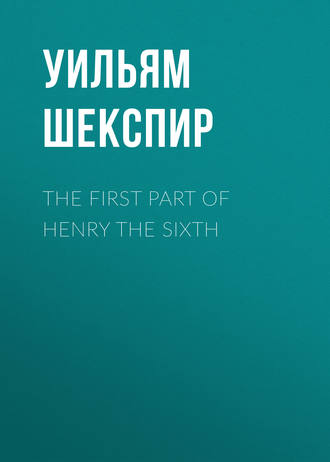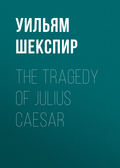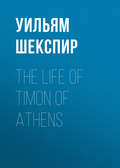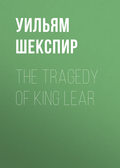полная версия

Уильям Шекспир
The First Part of Henry the Sixth
SCENE 2
France. Before Bordeaux
Enter TALBOT, with trump and drum
TALBOT. Go to the gates of Bordeaux, trumpeter;
Summon their general unto the wall.
Trumpet sounds a parley. Enter, aloft, the GENERAL OF THE FRENCH, and others
English John Talbot, Captains, calls you forth,
Servant in arms to Harry King of England;
And thus he would open your city gates,
Be humble to us, call my sovereignvours
And do him homage as obedient subjects,
And I'll withdraw me and my bloody power;
But if you frown upon this proffer'd peace,
You tempt the fury of my three attendants,
Lean famine, quartering steel, and climbing fire;
Who in a moment even with the earth
Shall lay your stately and air braving towers,
If you forsake the offer of their love.
GENERAL OF THE FRENCH. Thou ominous and fearful owl of
death,
Our nation's terror and their bloody scourge!
The period of thy tyranny approacheth.
On us thou canst not enter but by death;
For, I protest, we are well fortified,
And strong enough to issue out and fight.
If thou retire, the Dauphin, well appointed,
Stands with the snares of war to tangle thee.
On either hand thee there are squadrons pitch'd
To wall thee from the liberty of flight,
And no way canst thou turn thee for redress
But death doth front thee with apparent spoil
And pale destruction meets thee in the face.
Ten thousand French have ta'en the sacrament
To rive their dangerous artillery
Upon no Christian soul but English Talbot.
Lo, there thou stand'st, a breathing valiant man,
Of an invincible unconquer'd spirit!
This is the latest glory of thy praise
That I, thy enemy, due thee withal;
For ere the glass that now begins to run
Finish the process of his sandy hour,
These eyes that see thee now well coloured
Shall see thee withered, bloody, pale, and dead.
[Drum afar off]
Hark! hark! The Dauphin's drum, a warning bell,
Sings heavy music to thy timorous soul;
And mine shall ring thy dire departure out. Exit
TALBOT. He fables not; I hear the enemy.
Out, some light horsemen, and peruse their wings.
O, negligent and heedless discipline!
How are we park'd and bounded in a pale
A little herd of England's timorous deer,
Maz'd with a yelping kennel of French curs!
If we be English deer, be then in blood;
Not rascal-like to fall down with a pinch,
But rather, moody-mad and desperate stags,
Turn on the bloody hounds with heads of steel
And make the cowards stand aloof at bay.
Sell every man his life as dear as mine,
And they shall find dear deer of us, my friends.
God and Saint George, Talbot and England's right,
Prosper our colours in this dangerous fight! Exeunt
SCENE 3
Plains in Gascony
Enter YORK, with trumpet and many soldiers. A MESSENGER meets him
YORK. Are not the speedy scouts return'd again
That dogg'd the mighty army of the Dauphin?
MESSENGER. They are return'd, my lord, and give it out
That he is march'd to Bordeaux with his power
To fight with Talbot; as he march'd along,
By your espials were discovered
Two mightier troops than that the Dauphin led,
Which join'd with him and made their march for
Bordeaux.
YORK. A plague upon that villain Somerset
That thus delays my promised supply
Of horsemen that were levied for this siege!
Renowned Talbot doth expect my aid,
And I am louted by a traitor villain
And cannot help the noble chevalier.
God comfort him in this necessity!
If he miscarry, farewell wars in France.
Enter SIR WILLIAM LUCY
LUCY. Thou princely leader of our English strength,
Never so needful on the earth of France,
Spur to the rescue of the noble Talbot,
Who now is girdled with a waist of iron
And hemm'd about with grim destruction.
To Bordeaux, warlike Duke! to Bordeaux, York!
Else, farewell Talbot, France, and England's honour.
YORK. O God, that Somerset, who in proud heart
Doth stop my cornets, were in Talbot's place!
So should we save a valiant gentleman
By forfeiting a traitor and a coward.
Mad ire and wrathful fury makes me weep
That thus we die while remiss traitors sleep.
LUCY. O, send some succour to the distress'd lord!
YORK. He dies; we lose; I break my warlike word.
We mourn: France smiles. We lose: they daily get-
All long of this vile traitor Somerset.
LUCY. Then God take mercy on brave Talbot's soul,
And on his son, young John, who two hours since
I met in travel toward his warlike father.
This seven years did not Talbot see his son;
And now they meet where both their lives are done.
YORK. Alas, what joy shall noble Talbot have
To bid his young son welcome to his grave?
Away! vexation almost stops my breath,
That sund'red friends greet in the hour of death.
Lucy, farewell; no more my fortune can
But curse the cause I cannot aid the man.
Maine, Blois, Poictiers, and Tours, are won away
Long all of Somerset and his delay. Exit with forces
LUCY. Thus, while the vulture of sedition
Feeds in the bosom of such great commanders,
Sleeping neglection doth betray to loss
The conquest of our scarce cold conqueror,
That ever-living man of memory,
Henry the Fifth. Whiles they each other cross,
Lives, honours, lands, and all, hurry to loss. Exit
SCENE 4
Other plains of Gascony
Enter SOMERSET, With his forces; an OFFICER of TALBOT'S with him
SOMERSET. It is too late; I cannot send them now.
This expedition was by York and Talbot
Too rashly plotted; all our general force
Might with a sally of the very town
Be buckled with. The over daring Talbot
Hath sullied all his gloss of former honour
By this unheedful, desperate, wild adventure.
York set him on to fight and die in shame.
That, Talbot dead, great York might bear the name.
OFFICER. Here is Sir William Lucy, who with me
Set from our o'er-match'd forces forth for aid.
Enter SIR WILLIAM LUCY
SOMERSET. How now, Sir William! Whither were you sent?
LUCY. Whither, my lord! From bought and sold Lord
Talbot,
Who, ring'd about with bold adversity,
Cries out for noble York and Somerset
To beat assailing death from his weak legions;
And whiles the honourable captain there
Drops bloody sweat from his war-wearied limbs
And, in advantage ling'ring, looks for rescue,
You, his false hopes, the trust of England's honour,
Keep off aloof with worthless emulation.
Let not your private discord keep away
The levied succours that should lend him aid,
While he, renowned noble gentleman,
Yield up his life unto a world of odds.
Orleans the Bastard, Charles, Burgundy,
Alencon, Reignier, compass him about,
And Talbot perisheth by your default.
SOMERSET. York set him on; York should have sent him aid.
LUCY. And York as fast upon your Grace exclaims,
Swearing that you withhold his levied host,
Collected for this expedition.
SOMERSET. York lies; he might have sent and had the horse.
I owe him little duty and less love,
And take foul scorn to fawn on him by sending.
LUCY. The fraud of England, not the force of France,
Hath now entrapp'd the noble minded Talbot.
Never to England shall he bear his life,
But dies betray'd to fortune by your strife.
SOMERSET. Come, go; I will dispatch the horsemen straight;
Within six hours they will be at his aid.
LUCY. Too late comes rescue; he is ta'en or slain,
For fly he could not if he would have fled;
And fly would Talbot never, though he might.
SOMERSET. If he be dead, brave Talbot, then, adieu!
LUCY. His fame lives in the world, his shame in you.
Exeunt
SCENE 5
The English camp near Bordeaux
Enter TALBOT and JOHN his son
TALBOT. O young John Talbot! I did send for thee
To tutor thee in stratagems of war,
That Talbot's name might be in thee reviv'd
When sapless age and weak unable limbs
Should bring thy father to his drooping chair.
But, O malignant and ill-boding stars!
Now thou art come unto a feast of death,
A terrible and unavoided danger;
Therefore, dear boy, mount on my swiftest horse,
And I'll direct thee how thou shalt escape
By sudden flight. Come, dally not, be gone.
JOHN. Is my name Talbot, and am I your son?
And shall I fly? O, if you love my mother,
Dishonour not her honourable name,
To make a bastard and a slave of me!
The world will say he is not Talbot's blood
That basely fled when noble Talbot stood.
TALBOT. Fly to revenge my death, if I be slain.
JOHN. He that flies so will ne'er return again.
TALBOT. If we both stay, we both are sure to die.
JOHN. Then let me stay; and, father, do you fly.
Your loss is great, so your regard should be;
My worth unknown, no loss is known in me;
Upon my death the French can little boast;
In yours they will, in you all hopes are lost.
Flight cannot stain the honour you have won;
But mine it will, that no exploit have done;
You fled for vantage, every one will swear;
But if I bow, they'll say it was for fear.
There is no hope that ever I will stay
If the first hour I shrink and run away.
Here, on my knee, I beg mortality,
Rather than life preserv'd with infamy.
TALBOT. Shall all thy mother's hopes lie in one tomb?
JOHN. Ay, rather than I'll shame my mother's womb.
TALBOT. Upon my blessing I command thee go.
JOHN. To fight I will, but not to fly the foe.
TALBOT. Part of thy father may be sav'd in thee.
JOHN. No part of him but will be shame in me.
TALBOT. Thou never hadst renown, nor canst not lose it.
JOHN. Yes, your renowned name; shall flight abuse it?
TALBOT. Thy father's charge shall clear thee from that stain.
JOHN. You cannot witness for me, being slain.
If death be so apparent, then both fly.
TALBOT. And leave my followers here to fight and die?
My age was never tainted with such shame.
JOHN. And shall my youth be guilty of such blame?
No more can I be severed from your side
Than can yourself yourself yourself in twain divide.
Stay, go, do what you will, the like do I;
For live I will not if my father die.
TALBOT. Then here I take my leave of thee, fair son,
Born to eclipse thy life this afternoon.
Come, side by side together live and die;
And soul with soul from France to heaven fly. Exeunt
SCENE 6
A field of battle
Alarum: excursions wherein JOHN TALBOT is hemm'd about, and TALBOT rescues him
TALBOT. Saint George and victory! Fight, soldiers, fight.
The Regent hath with Talbot broke his word
And left us to the rage of France his sword.
Where is John Talbot? Pause and take thy breath;
I gave thee life and rescu'd thee from death.
JOHN. O, twice my father, twice am I thy son!
The life thou gav'st me first was lost and done
Till with thy warlike sword, despite of fate,
To my determin'd time thou gav'st new date.
TALBOT. When from the Dauphin's crest thy sword struck
fire,
It warm'd thy father's heart with proud desire
Of bold-fac'd victory. Then leaden age,
Quicken'd with youthful spleen and warlike rage,
Beat down Alencon, Orleans, Burgundy,
And from the pride of Gallia rescued thee.
The ireful bastard Orleans, that drew blood
From thee, my boy, and had the maidenhood
Of thy first fight, I soon encountered
And, interchanging blows, I quickly shed
Some of his bastard blood; and in disgrace
Bespoke him thus: 'Contaminated, base,
And misbegotten blood I spill of thine,
Mean and right poor, for that pure blood of mine
Which thou didst force from Talbot, my brave boy.'
Here purposing the Bastard to destroy,
Came in strong rescue. Speak, thy father's care;
Art thou not weary, John? How dost thou fare?
Wilt thou yet leave the battle, boy, and fly,
Now thou art seal'd the son of chivalry?
Fly, to revenge my death when I am dead:
The help of one stands me in little stead.
O, too much folly is it, well I wot,
To hazard all our lives in one small boat!
If I to-day die not with Frenchmen's rage,
To-morrow I shall die with mickle age.
By me they nothing gain an if I stay:
'Tis but the short'ning of my life one day.
In thee thy mother dies, our household's name,
My death's revenge, thy youth, and England's fame.
All these and more we hazard by thy stay;
All these are sav'd if thou wilt fly away.
JOHN. The sword of Orleans hath not made me smart;
These words of yours draw life-blood from my heart.
On that advantage, bought with such a shame,
To save a paltry life and slay bright fame,
Before young Talbot from old Talbot fly,
The coward horse that bears me fall and die!
And like me to the peasant boys of France,
To be shame's scorn and subject of mischance!
Surely, by all the glory you have won,
An if I fly, I am not Talbot's son;
Then talk no more of flight, it is no boot;
If son to Talbot, die at Talbot's foot.
TALBOT. Then follow thou thy desp'rate sire of Crete,
Thou Icarus; thy life to me is sweet.
If thou wilt fight, fight by thy father's side;
And, commendable prov'd, let's die in pride. Exeunt
SCENE 7
Another part of the field
Alarum; excursions. Enter old TALBOT led by a SERVANT
TALBOT. Where is my other life? Mine own is gone.
O, where's young Talbot? Where is valiant John?
Triumphant death, smear'd with captivity,
Young Talbot's valour makes me smile at thee.
When he perceiv'd me shrink and on my knee,
His bloody sword he brandish'd over me,
And like a hungry lion did commence
Rough deeds of rage and stern impatience;
But when my angry guardant stood alone,
Tend'ring my ruin and assail'd of none,
Dizzy-ey'd fury and great rage of heart
Suddenly made him from my side to start
Into the clust'ring battle of the French;
And in that sea of blood my boy did drench
His overmounting spirit; and there died,
My Icarus, my blossom, in his pride.
Enter soldiers, bearing the body of JOHN TALBOT
SERVANT. O my dear lord, lo where your son is borne!
TALBOT. Thou antic Death, which laugh'st us here to scorn,
Anon, from thy insulting tyranny,
Coupled in bonds of perpetuity,
Two Talbots, winged through the lither sky,
In thy despite shall scape mortality.
O thou whose wounds become hard-favoured Death,
Speak to thy father ere thou yield thy breath!
Brave Death by speaking, whether he will or no;
Imagine him a Frenchman and thy foe.
Poor boy! he smiles, methinks, as who should say,
Had Death been French, then Death had died to-day.
Come, come, and lay him in his father's arms.
My spirit can no longer bear these harms.
Soldiers, adieu! I have what I would have,
Now my old arms are young John Talbot's grave. [Dies]
Enter CHARLES, ALENCON, BURGUNDY, BASTARD, LA PUCELLE, and forces
CHARLES. Had York and Somerset brought rescue in,
We should have found a bloody day of this.
BASTARD. How the young whelp of Talbot's, raging wood,
Did flesh his puny sword in Frenchmen's blood!
PUCELLE. Once I encount'red him, and thus I said:
'Thou maiden youth, be vanquish'd by a maid.'
But with a proud majestical high scorn
He answer'd thus: 'Young Talbot was not born
To be the pillage of a giglot wench.'
So, rushing in the bowels of the French,
He left me proudly, as unworthy fight.
BURGUNDY. Doubtless he would have made a noble knight.
See where he lies inhearsed in the arms
Of the most bloody nurser of his harms!
BASTARD. Hew them to pieces, hack their bones asunder,
Whose life was England's glory, Gallia's wonder.
CHARLES. O, no; forbear! For that which we have fled
During the life, let us not wrong it dead.
BASTARD. How the young whelp of Talbot's, raging wood,
Did flesh his puny sword in Frenchmen's blood!
PUCELLE. Once I encount'red him, and thus I said:
'Thou maiden youth, be vanquish'd by a maid.'
But with a proud majestical high scorn
He answer'd thus: 'Young Talbot was not born
To be the pillage of a giglot wench.'
So, rushing in the bowels of the French,
He left me proudly, as unworthy fight.
BURGUNDY. Doubtless he would have made a noble knight.
See where he lies inhearsed in the arms
Of the most bloody nurser of his harms!
BASTARD. Hew them to pieces, hack their bones asunder,
Whose life was England's glory, Gallia's wonder.
CHARLES. O, no; forbear! For that which we have fled
During the life, let us not wrong it dead.
Enter SIR WILLIAM Lucy, attended; a FRENCH HERALD preceding
LUCY. Herald, conduct me to the Dauphin's tent,
To know who hath obtain'd the glory of the day.
CHARLES. On what submissive message art thou sent?
LUCY. Submission, Dauphin! 'Tis a mere French word:
We English warriors wot not what it means.
I come to know what prisoners thou hast ta'en,
And to survey the bodies of the dead.
CHARLES. For prisoners ask'st thou? Hell our prison is.
But tell me whom thou seek'st.
LUCY. But where's the great Alcides of the field,
Valiant Lord Talbot, Earl of Shrewsbury,
Created for his rare success in arms
Great Earl of Washford, Waterford, and Valence,
Lord Talbot of Goodrig and Urchinfield,
Lord Strange of Blackmere, Lord Verdun of Alton,
Lord Cromwell of Wingfield, Lord Furnival of Sheffield,
The thrice victorious Lord of Falconbridge,
Knight of the noble order of Saint George,
Worthy Saint Michael, and the Golden Fleece,
Great Marshal to Henry the Sixth
Of all his wars within the realm of France?
PUCELLE. Here's a silly-stately style indeed!
The Turk, that two and fifty kingdoms hath,
Writes not so tedious a style as this.
Him that thou magnifi'st with all these tides,
Stinking and fly-blown lies here at our feet.
LUCY. Is Talbot slain-the Frenchmen's only scourge,
Your kingdom's terror and black Nemesis?
O, were mine eye-bans into bullets turn'd,
That I in rage might shoot them at your faces!
O that I could but can these dead to life!
It were enough to fright the realm of France.
Were but his picture left amongst you here,
It would amaze the proudest of you all.
Give me their bodies, that I may bear them hence
And give them burial as beseems their worth.
PUCELLE. I think this upstart is old Talbot's ghost,
He speaks with such a proud commanding spirit.
For God's sake, let him have them; to keep them here,
They would but stink, and putrefy the air.
CHARLES. Go, take their bodies hence.
LUCY. I'll bear them hence; but from their ashes shall be
rear'd
A phoenix that shall make all France afeard.
CHARLES. So we be rid of them, do with them what thou
wilt.
And now to Paris in this conquering vein!
All will be ours, now bloody Talbot's slain. Exeunt






